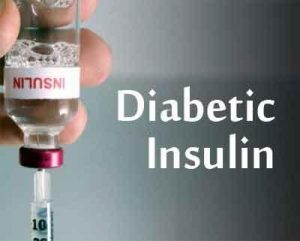- Home
- Editorial
- News
- Practice Guidelines
- Anesthesiology Guidelines
- Cancer Guidelines
- Cardiac Sciences Guidelines
- Critical Care Guidelines
- Dentistry Guidelines
- Dermatology Guidelines
- Diabetes and Endo Guidelines
- Diagnostics Guidelines
- ENT Guidelines
- Featured Practice Guidelines
- Gastroenterology Guidelines
- Geriatrics Guidelines
- Medicine Guidelines
- Nephrology Guidelines
- Neurosciences Guidelines
- Obs and Gynae Guidelines
- Ophthalmology Guidelines
- Orthopaedics Guidelines
- Paediatrics Guidelines
- Psychiatry Guidelines
- Pulmonology Guidelines
- Radiology Guidelines
- Surgery Guidelines
- Urology Guidelines
Protein removal may reverse diabetic insulin resistance: study

Genetically removing a protein or using drug to target it can help reverse diabetic insulin resistance and glucose intolerance, suggests new research.
By binding to insulin receptors on cells, the protein Galectin-3 (Gal3) prevents insulin from attaching to the receptors, resulting in cellular insulin resistance.
"This study puts Gal3 on the map for insulin resistance and diabetes in mouse model," said senior author of the study Jerrold Olefsky, Professor at University of California San Diego School of Medicine.
When people have insulin resistance, glucose builds up in the blood instead of being absorbed by the cells, leading to Type-2 diabetes or prediabetes, according to National Institute of Diabetes and Digestive and Kidney Diseases, part of US National Institutes of Health (NIH).
"Our findings suggest that Gal3 inhibition in people could be an effective anti-diabetic approach," Olefsky said.
The team showed that by genetically removing Gal3 or using pharmaceutical inhibitors to target it, insulin sensitivity and glucose tolerance could be returned to normal, even among older mice.
Olefsky and other researchers have been studying how chronic tissue inflammation leads to insulin resistance in Type-2 diabetes.
In the current study, published in the journal Cell, researchers explained that inflammation requires macrophages specialised cells that destroy targeted cells.
In obese adipose tissue (fat), for example, 40 per cent of cells are macrophages.
Macrophages in turn secrete Gal3, which then acts as a signaling protein attracting more macrophages, thus resulting in the production of even more Gal3.
Furthermore, investigators identified bone marrow-derived macrophages as the source of Gal3 that leads to insulin resistance.

Disclaimer: This site is primarily intended for healthcare professionals. Any content/information on this website does not replace the advice of medical and/or health professionals and should not be construed as medical/diagnostic advice/endorsement or prescription. Use of this site is subject to our terms of use, privacy policy, advertisement policy. © 2020 Minerva Medical Treatment Pvt Ltd